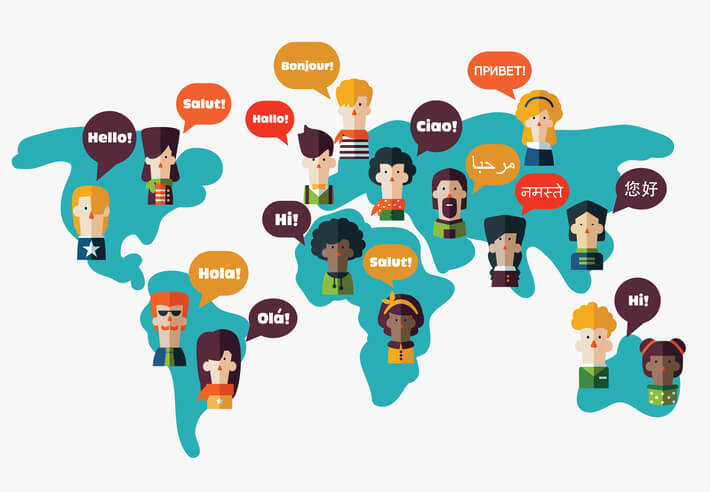The U.S. fails in terms of foreign language education. In comparison with other countries around the world where students will speak anywhere from 2 to 10 different languages by their teenage years, students in the U.S. generally go through their entire educational experience, usually including college, never learning to actually speak another language. This is largely due to the fact that second languages are rarely taught before the 6th or 7th grade in the U.S., at the point of puberty, when children generally lose their strong ability to pick up new language skills.

The debate that often surrounds this discussion is then, do we institute earlier educational practices for children in order to educate them on othe languages and cultures around the world?
Most people would support this assertion, but there are those that would not. In the educational sense, U.S. students lack understanding of geography and national cultures. We suffer as a society from lack of understanding and appreciation towards other countries and their heritages. With increased language exposure students would also be learning more about other groups of people and where their beliefs and differences come from. This exposure is invaluable as a huge problem in the modern world stems from a lack of understanding and appreciation towards the diversity that exists.

Furthermore, research shows that students who are exposed to secondary language education have better test scores and higher cognitive ability because they are better at stretching and using every part of their mind. If a student is actively engaging their brain to understand a different language and understand what others are saying better than they will be better listeners and learners in other subjects as well. With more and more practice and exposure these parts of our brain improve within that secondary language as well as within the person’s primary language. This is incredibly valuable for communication skills within indivuals and their improvement of their first language.

What’s more, one of the largest and best arguments towards starting language education early, is that it allows us to communicate and connect with people around the world directly. Being able to speak to someone in their native language is an incredible gift and often can bridge the gap of distance between people. By speaking another’s language it allows you to get to know them on an individual level and appreciate who they are and what they have to share with you, what they have to teach you. By learning another language there is an awe and an appreciation for diversity and the language is a tool to understand it better and dive deeper into that awe.
I have learned a second language by immersing myself in another culture, another country, around people I didn’t know. And as I learned that language I was able to get to know those people better and appreciate where I was staying more. But if I had known the language from the beginning of my time I know that I could have known the people better and appreciated the culture more from the get go. All people should learn another language, simply in hopes of equipping them to live in an interconnected globalized world.
Although despite these thoughts and statistics, there are still those who disagree. They would say that teaching foreign languages is not essential, especially not earlier on in school. One point of view of this is that English is the most largely spoken language in the world, and therefore as Native English speakers there is little need to learn another language and meet others where they are at in their language abilities because the majority of the world does speak our language or has access to learn it. Others would also so that financially and in economic sense it doesn’t really make sense to invest in further foreign language education. Paying more educators and supplying more classroom materials for these classes doesn’t necessarily make sense for public schools as they already have so many expenses and other areas where they could be investing more funds. And similarly to this argument, some would say that rather than encouraging further foreign language eduction, classes for computer sciences or civic engagement should be added to curriculum.
The arguments for and against further foreign language eduction within primary and secondary schools within the U.S. are extensive and diverse. Hopefully the conversation between the two sides can continue on and steps can be made in order to bring the U.S. further into the global relationships and support a greater appreciation for the diversity that surrounds us. Only more time and analysis of global interconnectivity will reveal whether there is a true need for a higher level of foreign language education within the U.S.
I really enjoyed your post! My mom is from Puerto Rico but I didn’t begin Spanish education in high school until 7th grade and although I continued it throughout the rest of my high school career, I cannot claim to be fluent in any form of Spanish. I think that the “American Dream” and the belief that we are the superior country hinders people from seeing the vast benefits of learning another language. Learning another language increases support for diversity and inclusion.